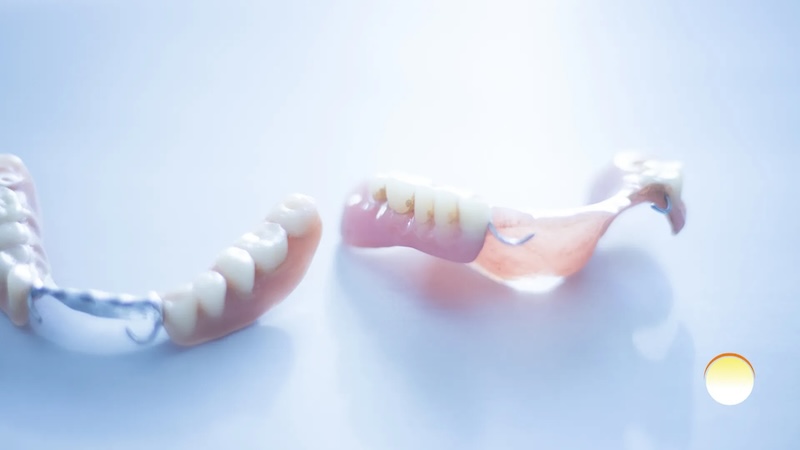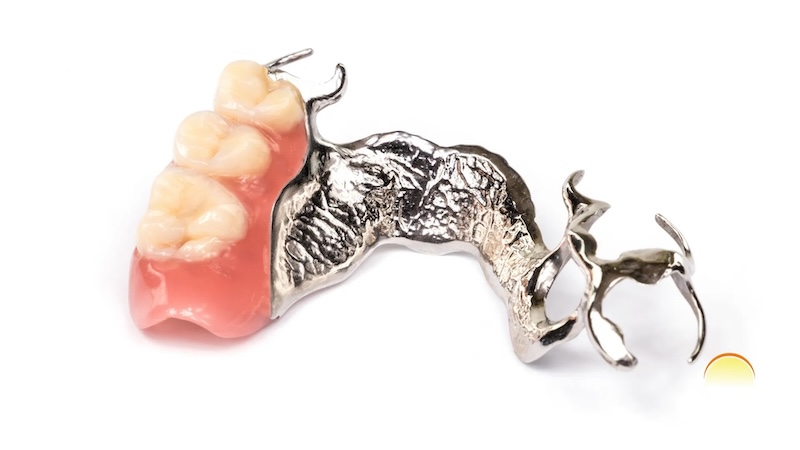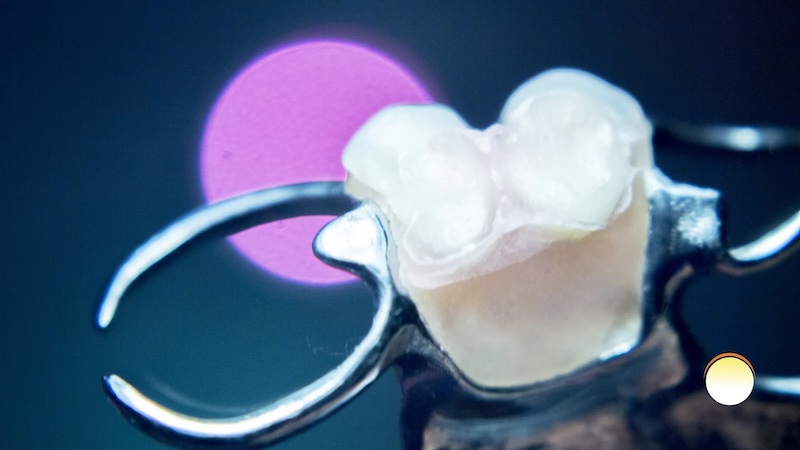Have you ever lost one or more of your teeth in an accident or suffered decay and damage to them? If this has happened, then you might need to know more about Partial Dentures!
Most people are curious about what their options are when missing one or several teeth on their top or bottom jaw. Here are some questions you may want to ask our dentists at Olean Dental Studio at your Partial Denture consultation.
What are Partial Dentures?
A Partial Denture is a plate with one or more false teeth on it. It may be all plastic or a mixture of metal and plastic. Both types of partial dentures may have clips (clasps) to help keep the denture in place in your mouth. Depending on where they are, some of these clips may show when you smile or open your mouth.

What are the advantages of Partial Dentures?
Partial Dentures are an excellent way to protect your teeth natural teeth and your bide. Aside from protecting your natural teeth from damage, it can also give you the following benefits:
- Enhance the appearance of your smile
- Improve the strength of your bite
- They serve to keep your remaining natural teeth in place, ideally preventing additional loss or damage
- Enhance your confidence
As Partial Dentures offer many benefits, they are considered a popular option among our patients who are missing teeth.
What are the types of Partial Dentures?
Partial Dentures are often used in restoring your bite but can also be used for cosmetic purposes (by giving your smile the appearance it previously had before tooth loss). Partial Dentures consist of durable materials like Thermoplastic or metal.
Thermoplastic partial dentures are typically less expensive option for patients. Thermoplastic materials have been available in prosthetic dentistry for more than 30 years and are a great option. The material doesn’t absorb odors or stains, and if patients suffer from allergies to acrylic or certain metals, it’s a great choice. Another advantage is the flexibility of the material - some patients feel that the appliance “disappears” or can feel “invisible” in their mouth.
Metal partial dentures are usually made from an alloy of cobalt and chromium, and they are much stronger. They are lighter to wear and can be supported by the remaining teeth. Although the base is metal, they have gum-colored plastic and natural-looking teeth fixed to them. Depending on your smile, you may or may not be able to see the the metal from the dentures when you smile.

How long does it take to get Partial Dentures?
The treatment usually requires two to four visits to our denture clinic located in Port Charlotte, Florida.
In the first appointment, our dentists, will examine your remaining teeth and bone to determine what type of dentures you are a candidate for.
Next, he will take an impression of your teeth and send it to the laboratory to create your dentures.
On your third visit, our dentist will have you try on your new dentures and we will make note of any necessary adjustments.
At last, you will come in for the final fitting and leave wearing your new smile!
At each appointment, patients are welcome to ask questions or bring any concerns to our teams' attention. Our goal is to make this process smooth and comfortable.
Do you need to use denture adhesive when wearing Partial Dentures?
Denture adhesives are adherents for your dentures to your gums. They can be purchased in powders, wafers, strips, or creams. Their purpose is to hold partial or full dentures in place. Many patients who wear Partial Dentures say they prefer using an adhesive.
Here are some of the reasons patients enjoy using denture adhesives for their partial dentures:
- Control - Adhesives enhance the stability of your partial dentures. This allows you to bite more strongly.
- Prevents Slipping – certain health conditions cause dry mouth which can affect the way your dentures adhere to your gums. The adhesive can assist with this issue.
- Sense of Security – even when your dentures fit perfectly, an adhesive can feel like a security blanket.
- Keeps Mouth Fresh – by preventing food particles from getting stuck under the dentures.

How do you take care of a Partial Denture?
Cleaning your dentures is just as important as cleaning your natural teeth.
Here are some tips you can follow to take care of your Partial Dentures:
- Brush your teeth and floss your remaining natural teeth regularly.
- Plaque and other debris can build up on dentures, just like on natural teeth. To clean your dentures, brush them with a soft-bristled toothbrush and nonabrasive toothpaste. You should soak them in a denture cleanser overnight.
- Handle your dentures with care. They can break if dropped or knocked off a high counter. We recommend keeping them in a safe space when they are not in your mouth.
- When inserting your dentures never force them in. If you are having any difficulty inserting them into your mouth, contact our office immediately for an adjustment. Your dentures should be easy to remove and insert.
Discover Additional Restorative Dentistry Options at Olean Dental Studio

When should I take out my dentures?
Dentures should be worn while you are awake. Your Partial Dentures are designed to fit like natural teeth; therefore, you should wear them during, meals, snacks, while speaking, relaxing, and more. Our dentists recommends removing your dentures before bedtime. If a patient prefers, they are welcome to wear dentures at night. However, it is suggested to remove them at night to give your gums and jawbone a chance to relax from the denture wear during the day.
How long will Partial Dentures last?
The average lifespan of partial dentures is between five to fifteen years. However, you can extend its life as long as you observe proper oral hygiene. As part of your dental care regimen, our dentists will explain how to maintain the best condition for your dentures.

The process of getting Partial Dentures can improve the quality of your life. If you’ve been thinking about getting dentures, now is the time to do it. It is a great way to improve your bite and improve your smile if you are missing teeth. Make an appointment with Olean Dental Studio to discuss your restorative dentistry and denture options.
